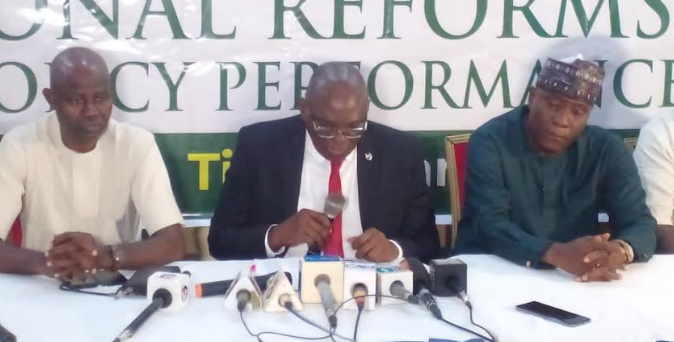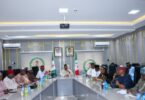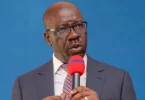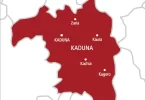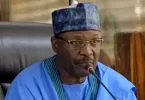A media think tank group, the Independent Media and Policy Initiative (IMPI), has attributed Nigeria’s long-standing economic challenges to the fuel subsidy system, which it claims was institutionalised by former military Heads of State, General Yakubu Gowon and General Olusegun Obasanjo.
The group alleges that their decisions to embed the fuel subsidy regime into Nigeria’s fiscal framework have caused significant damage to the nation’s economy over time.
Speaking at a press conference on Tuesday in Abuja, Chief Niyi Akinsiju, Chairman of IMPI, criticized both former leaders for introducing the subsidy as a short-term measure to mitigate rising global oil prices but allowing it to persist long after its economic relevance had faded. He explained that the policy, intended to be temporary, was formalized under Obasanjo’s regime, which institutionalized government-controlled pricing of petroleum products.
According to Akinsiju, “General Olusegun Obasanjo, then Military Head of State, formalized the petroleum subsidy regime into law by making it mandatory for the government to fix the prices of certain products, including petrol. This was initially meant to be a short-term fiscal response to the oil price spike instigated by the Organization of Petroleum Exporting Countries (OPEC).”
The group highlighted that under both Gowon and Obasanjo, the price of petrol still increased significantly despite the subsidy. Under Gowon, fuel prices rose by 40%, from six kobo per litre to nine kobo per litre, and under Obasanjo, there was a 70% hike, from nine kobo to 15.3 kobo per litre. Akinsiju argued that this shows that even during their administrations, economic conditions required price adjustments, undermining the long-term justification for keeping the subsidy in place.
Akinsiju further stated, “Subsidies were originally introduced when Nigeria had sufficient fiscal resources to absorb the costs, and they were intended as a fairer way to redistribute wealth. However, when the economy is in decline, maintaining subsidies leads to fiscal distortions. Yet, fuel subsidies have become so entrenched in our economic system that every attempt to remove them since 1988 has been met with widespread opposition.”
He emphasized that Nigeria’s continued reliance on subsidies is detrimental to its economy, likening the situation to “economic Siamese twins” where Nigeria and the subsidy system are inseparable despite the strain it places on the nation’s finances. He lamented that public uproar often follows any effort to adjust fuel prices, largely led by the Nigeria Labour Congress (NLC), which remains critical of any subsidy removal, including that by the current administration.
Despite the widespread belief that fuel subsidies should have been scrapped before 2023, Akinsiju cited an opinion poll showing that 73% of Nigerians expressed dissatisfaction with their removal. Nonetheless, he stressed that subsidies are an “economic weapon of mass destruction,” with the potential to stifle Nigeria’s growth if not addressed.
He pointed out that in 2022 alone, Nigeria spent $10 billion on fuel subsidies, representing 40% of the country’s revenue. This massive expenditure diverts critical resources from essential sectors such as infrastructure, healthcare, and education. Additionally, fuel imports drain around $28 billion annually from the country’s foreign reserves, further compounding the problem. To sustain the subsidy, Nigeria had to borrow N1 trillion in 2022, an unsustainable financial burden for the nation.
Akinsiju argued that the fuel subsidy disproportionately benefits wealthier Nigerians, with households in the bottom 40% of income distribution accounting for less than 3% of fuel purchases at the pump. In contrast, private businesses, public transportation services, government agencies, and other commercial entities consume about three-quarters of all the fuel sold in the country.
The group also noted that many vehicles used for transporting large groups of people or goods are powered by diesel, which is already deregulated. Similarly, kerosene, primarily used by low-income households, is no longer subsidized, meaning that the most vulnerable Nigerians are already paying market prices for their fuel.
“Subsidies, therefore, mainly benefit those who can afford to pay market rates for fuel,” Akinsiju said. He questioned the stance of the NLC, suggesting that their opposition to subsidy removal serves the interests of wealthier Nigerians rather than those truly in need.
In addressing the current state of the fuel subsidy regime, Akinsiju called for a shift in perspective, urging Nigerians to embrace the reforms outlined in the Petroleum Industry Act (PIA) 2021. Section 5(e) of the PIA gives the Nigerian National Petroleum Corporation Limited (NNPCL) the sole authority to establish pricing frameworks for petroleum products based on fair market value, effectively ending the government’s role in subsidizing fuel costs.
Akinsiju concluded by stressing that the removal of subsidies is essential for Nigeria’s long-term economic health, noting that continuing the current policy would only exacerbate the country’s fiscal challenges. He encouraged the government to stand firm in its decision to eliminate fuel subsidies and redirect the funds towards sectors that can deliver more sustainable economic benefits for the nation.
In summary, IMPI’s argument underscores the historical roots of the fuel subsidy system, the unsustainable financial burden it now imposes, and the pressing need for reforms to address Nigeria’s economic challenges.
ALSO READ THESE TOP STORIES FROM TheWitness

